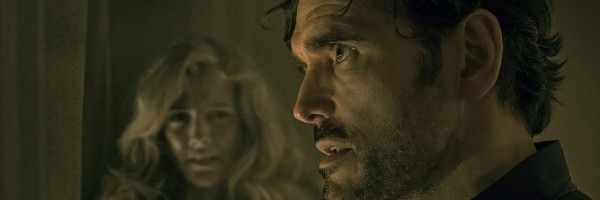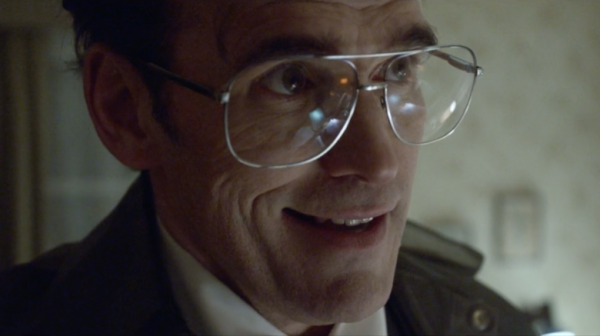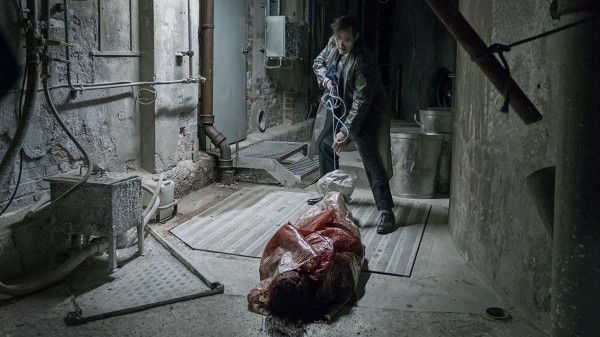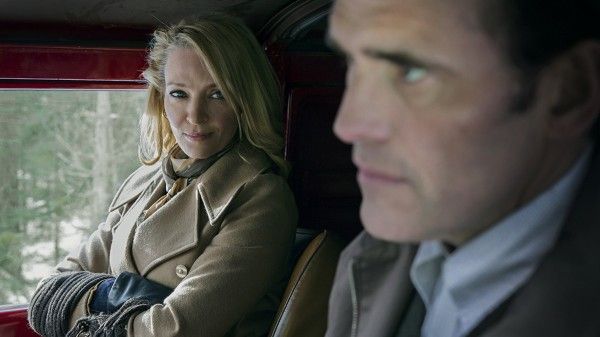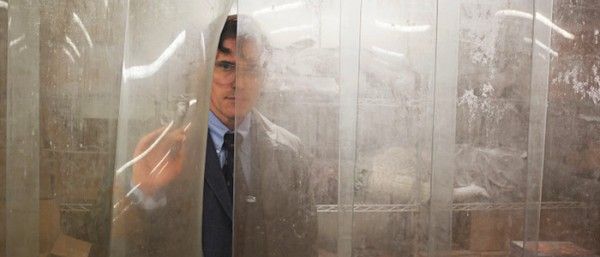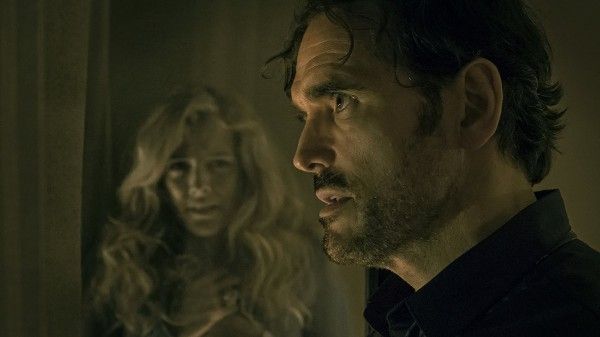You may have heard about the 100 or so attendees who walked out of Lars Von Trier’s The House That Jack Built during its world premiere at the 71st Festival de Cannes. The horrified attendees were seemingly offended by the actions of the Jack in question (Matt Dillon), a serial killer with OCD. Clearly, these people have extremely delicate or attention-seeking dispositions because there is nothing more graphic in this picture than what you’d see in a Final Destination flick. It appears Von Trier’s reputation has a life of its own even when he has much grander cinematic aspirations in mind.
Broken into five parts and an epilogue, Jack Built follows specific incidents that the title character, an admitted serial killer, chronicles to Verge (Bruno Ganz) in a voiceover commentary between the two. Throughout each part Verge prods and pokes at Jack, never ceding to him that his killing spree is the artistic achievement he thinks it is. Oh, but we’re getting ahead of ourselves a bit, aren’t we?
The first part finds Jack innocently meeting a woman with a flat tire on the side of a little traveled road (Uma Thurman). It’s the 1970s, and with some payphone miles away this lady insists he bring her to a blacksmith who can repair her broken jack that will then allow her to change the tire. The longer the two are together the more obvious it becomes that this stranded traveler is a bit much (she continually jokes that she thinks Jack looks like a serial killer). So, when Jack finally kills her it’s almost as though you’re meant to justify it in your head as a “these things happen” sort of fashion. Of course, Jack is hardly finished as his murders become more and more gruesome and clearly for sport, or art, or wherever his head is at that particular moment over the film’s 12-year span.
There is the widower (Siobhan Fallon Hogan), the single mother of two (Sofie Gråbøl) and Simple (Riley Keogh, the best performance in the film), a woman who actually has romantic inclinations for Jack. With each kill Jack’s ego gets larger and he starts to refer to himself as "Mr. Sophistication," seemingly obsessed with his own inherent abilities. In fact, Jack takes photos or create sculptures with the bodies in numerous poses, quite happy with his unique creations. Needless to say, Verge is not impressed, and neither is the audience, if Von Trier is really going to partake in this metaphor on his own career over the entire film (spoiler alert: you could argue he pretty much does).
As a character though Jack is sort of all over the place. When he first begins to kill, Von Trier goes through great lengths to chronicle his OCD (a good skill for this profession no doubt) and then it simply goes away. Von Trier spent years researching serial killers (the film was originally intended to be an 8-part TV series) so perhaps that’s a common trait, who’s to say? You just wonder why the scenes with his OCD had to be so excruciatingly long if it would turn out to be so inconsequential to his character in the end. And that points to a larger problem with the picture overall.
The House That Jack Built starts off painfully slow. The first two parts especially have little energy or, even worse, originality and feel like a significant miscalculation on the director’s part Just when you’ve had about enough, however, Keogh’s Simple shows up followed by a final act where there is actually genuine tension with Jack’s potential victims (even if the manner in which they are going to be killed seems right out of a torture porn movie). The narrative sort of starts to come together, and you see the strings Von Trier has been pulling along the way. The best part of the film is absolutely the epilogue, a stylistic departure from the rest of the proceedings that is better served unspoiled, although we will tease it does harken back to Von Trier’s Antichrist; the rest of the film could have used some of that surreal magic.
Unfortunately, while he’s game for whatever Von Trier throws at him, Dillon simply seems like the fourth or fifth choice for the role. There is a charisma missing from his portrayal of Jack that, as we insinuated, the film desperately needs early on. Dillon’s portrayal isn’t bad, per se, but for someone who is in almost every scene of the picture his performance is honestly the last thing you’ll remember. That’s problematic.
The picture also features other distractions from potentially the worst shot in Sweden and Denmark for the United States ever put on screen, to gigantic gaps in narrative logic that simply don’t make sense even in a non-digital age. What’s most frustrating about Jack Built, however, is that after the auteur’s cinematic peaks with the aforementioned Antichrist and Melancholia it all feels somewhat minor. It almost feels like Von Trier is simply trying too hard, and, frankly, that’s a frustrating feeling for anyone to leave a theater with.
Grade: B-

